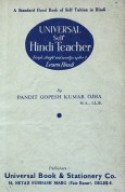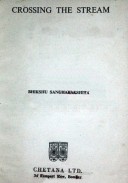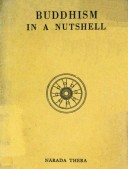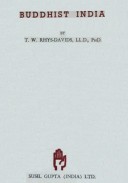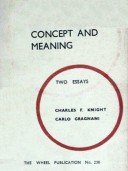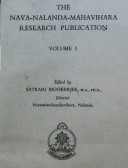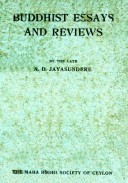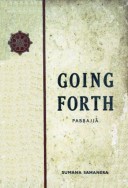MCB: 1210000006725
PREFACE
I have pleasure in presenting this small book to those people of India and abroad, who have good knowledge of the English language but do not know Hindi and have a desire to learn our national language.
There are in the market, several books for teaching Hindi. Some of these are through the English medium but on going through them, I find that they are more pedantic than necessary. There is undue emphasis on grammar. It is not necessary, in my humble opinion, to lay extra stress on the grammar. What is necessary is the ‘‘sense” of the language, which, when developed, would guide a person fairly well in expressing one’s ideas. This may be considered a bold statement, indeed for even many scholarly people consider grammar the main plane, on which a language is built. Without entering into controversy, I may, however, add that a boy of five speaks his mother tongue quite well, without having been taught the grammar of his language.
Acting on this principle, I have given vocabulary of essential words in Part II of this book. I would, therefore, suggest that every reader mark certain words as more important and concentrate on them, in first reading.
Similarly in part III have been given small sentences, used generally in conversation. One is not always required to use or understand big words or express complicated ideas. Every day talk in routine life, or in a new place, consists of formal exchange of greetings and enquiries and sometimes one fumbles for a small reply not because one can not think of the ‘words’ but because one finds it difficult to put together the few words, in a suitable sentence. It is to meet this obvious difficulty that ready made sentences have been given in part III. If readers go through them carefully, they would find, they would be able to meet exigencies fairly well and acquit themselves with promptness, when they are confronted with questions or they themselves have to put the same.
The grammar portion has been purposely pat off and included only in Part IV. Grammar of a language is generally difficult- and more dry than interesting. Essential rules of grammar have therefore been provided in this part. It may however be added that within the compass of this volume, it was not possible to be more elaborate in dilating upon grammatical peculiarities. Readers who want to master the full grammar may, therefore, find this volume not so comprehensive and may supplement their knowledge with regular books on grammar. But I have confidence that the requirements of all learners would be met within Part IV itself.
Part V consists of exercises in reading. Obviously this book is intended for educated people and those whose mental horizon has been thrown far sufficiently back.
Exercises for reading, generally given in Hindi readers intended for young boys, would have been inappropriate here, because this book is intended for grown up educated people. As such, passages from the writings of eminent people have been given. Language is primarily the vehicle of thought and expression and the passages provided give some idea of the thoughts of great men—-excerpts from whose writing have been included herein. Many of these passages are from the pen of eminent living authors, whom I approached individually tor their writings, to enable me to include the same in Part V of this book and I thank them for their kindness in so graciously to acceding my request. In some, where the original was not in Hindi—a translation in Hindi had to be given instead.
Part VI contains special vocabulary and may be studied by those who are likely to use words given therein. Otherwise this part may be omitted.
Part VII contains simple exercises in writing some idiomatic expressions and speeches. It is hoped the public would appreciate the book.
Author
CONTENTS
Hints for Pronunciation……………………… 1
PART I-ALPHABETS AND READING OF SMALL WORDS
Chapter 1. Hindi Alphabets……………… 6
Chapter 2. ……………………………………… 8
Chapter 3. ……………………………………. 12
Chapter 4. ……………………………………. 15
Chapter 5. ……………………………………. 17
Chapter 6. ……………………………………. 20
Chapter 7. ……………………………………. 23
Chapter 8. ……………………………………. 24
Chapter 9. ……………………………………. 26
Chapter 10. Conjunct Consonants…….. 29
Chapter 11. Exercise for Reading-consisting of
English words written in Devnagari Script………. 33
PART II—ESSENTIAL VOCABULARY
Chapter 12. Words Pertaining to Human Body— Earth and Elements. 37
Chapter 13. ……… Words Pertaining to Relations— the Dress —Writing. 41
Chapter 14. ………. Words Pertaining to Nutriments— House and Garden
—Parts of the House and Fixtures—Furniture and Articles—Garden.. 48
Chapter 15. Names of Birds—Fish and Insects
— Water Animals—Quadrupeds………. 64
Chapter 16. Personal Pronouns and Possessive Adjectives
— Demonstrative and Relative Pronouns — Cardinal Numbers
— Collective Numbers—Ordinal Numbers—Weights
—Measures—Coins and Fractions—Scale………. 57
Chapter 17. Adjectives—Colours…………………… 70
Chapter 18. List of Essential Verbs with their Meanings and Pronunciations 76
Chapter 19. Vocabulary Pertaining to Time and Seasons
—Country and States…………………………………… 84
Chapter 20. Adverbs—Prepositions— Conjunctions and other Expressions. 87
PART III—SHORT SENTENCES USED IN CONVERSATION
Chapter 21. Sentences—Affirmative—Complimentary—Negative
—Apologising—Asking Questions — Imperative 96
Chapter 22. Sentences—Believing and thinking— Meeting and Parting
— Joy and Surprise —Sorrow—Anger and Blame—Age. 105
Chapter 23. Sentences—Eating—Drinking—Tea
—Smoking—Evening—Walking………………….. 111
Chapter 24. Question and Answers on Time and Watch—Going to see a Person
—Inviting—Travelling by Rail—at a Hotel……. 117
Chapter 25. Enquiries on Losing and Searching—Talking and Understanding
—urchase and Sale—Summer—Rainy Season
—Autumn—Winter —Dhobi (Washerman)…… 125
PART IV GRAMMAR
Chapter 26. Gender and Nouns—Gender of Noun 132 and forms of Verbs
—Gender of Pronoun—Masculine forms of Pronouns or Adjectives
— Feminine forms of Possessive Pronouns or Adjectives
—Gender and Suffixes—Gender and Adjective. 132
Chapter 27—28. Number and Declension—Number and Nouns
—Masculine—Feminine —Number and Declension of Pronouns
—Person and Pronoun —Number and Adjectives 146
Chapter 29. Syntax…………………………………….. 157
Chapter 30. Adjectives—Positive—Comparative—Superlative
—Repetition of Adjectives and Adjectives in Pairs………. 159
Chapter 31. Adverbs—Repetition of Adverb—Intensity—Conjunction…. 162
Chapter 32. Conjugation of Verbs—Active Voice—Present Tense
—Indefinite Continuous—Perfect—Perfect Continuous—Past Tense
—Indefinite—Continuous—Perfect—Perfect Continuous—Perfect Conditional Past
—Future Tense—Indefinite—Continuous—Perfect Continuous……… 167
Chapter 33. Conjugation of Verbs—Passive Voice—Present Indefinite
—Present Continuous—Present Perfect—Past Indefinite—Past Continuous
—Past Perfect—Future Indefinite—Future Perfect……….. 178
Chapter 34. Verbs—Imperative Mood………….. 187
Chapter 35. ………… Verbs—Subjunctive Mood—Infinitive Mood—Present Participle 190
Chapter 36. ………. Verbs—Interrogative Sentences. 194
Chapter 37. Verbs—Auxiliary……………………… 195
Chapter 38. Verbs—Some other Peculiarities—Different Uses
—Additives and Compound Words……………… 198
PART V—EXERCISES FOR HINDI READING
By Mahatma Gandhi
Pt. Jawaharla Nehru
Dr. Rajendra Prasad
Shri Shri Prakash
Shri K. M. Munshi
Shri Ravindra
Nath Tagore
Swami Sivanand
Saraswati
Shri Arvind
Our National Song
PART VII—ADDITIONAL VOCABULARY
Vocabulary for Housewives—Articles of Ration—Names of Spices—Vegetables
—Fruits—Dry Fruits—Cooking and Eating Utensils and Accessories
—Verbs Connected with Cooking—Some other connected Expressions
—Words used by Doctors and Patients—Conditions of Body
—Names of Internal organs and bodily Functions and Defects
—Words Pertaining to Professions and Trades
—Typical Examples of Phrases and Sentences used in Offices and Parliament 230
PART VII—LETTER WRITING AND SHORT SPEECHES… 247
 Facebook
Facebook
 Google
Google
 Google+
Google+
